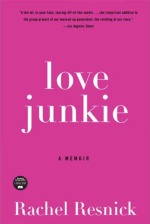For most of us, self–realization is something to which we aspire, yet, are only compelled to seek in the aftermath of painful encounters with others. It’s not a system without its pitfalls, but it’s the one we’ve got. If we’re lucky, we don’t lose too much of our pride, money or health in the process of hunting down human affection. But, in all likelihood, we leave behind a little bit of each with those we choose and lose over the course of our lives. And sometimes we leave more than a little.
 Yet, whatever our losses or setbacks, as Americans we believe in redemption. We are the country who puts our trust equally in both God and in the promise of a comeback. We believe we can resurface after being pulled under by scandal, illness or heartbreak — and we can come back stronger and better. However, before we can ascend from our ashes, protocol requires us to confess our sins — just ask Bill Clinton.
Yet, whatever our losses or setbacks, as Americans we believe in redemption. We are the country who puts our trust equally in both God and in the promise of a comeback. We believe we can resurface after being pulled under by scandal, illness or heartbreak — and we can come back stronger and better. However, before we can ascend from our ashes, protocol requires us to confess our sins — just ask Bill Clinton.
Love Junkie, is Rachel Resnick’s confession to forty-plus years of looking for love in all the wrong places, and the devastation in almost every area of her life, to which that obsessive search led. She begins the memoir with her “ah ha” moment. This is the instant known in twelve-step programs as “hitting bottom.” Resnick’s goes like this: One night she comes home and discovers that her house has been broken-into and vandalized by an ex-boyfriend. Instinctively she calls a friend for support who consoles her, in part, by telling her that her ex is a “psycho.”
“Her words comfort me, though there’s a dull nagging thought — who’s psycho? I picked him. I kept him. I kept him even after he began debasing me, just as I picked and kept a lifetime of other men who seduced and then debased. So, if he’s a psycho, aren’t I a psycho, too?”
Ah ha!
As Resnick shows, a breakthrough in consciousness is only the beginning. Transformation happens only after painfully honest self-examination, and she devotes her narrative to just this kind of self-scrutiny. How did she get to be a forty-something with an Ivy League education and little more than a string of failed love affairs to show for it? Well, kiddies, as Freud once one said, it all starts in childhood.
Employing a well-crafted, deceptively conversational style, Resnick’s memoir uncovers the roots of her compulsion to pursue serial, abusive relationships; namely, her parents. She was born to an alcoholic, love-addicted mother and an emotionally (and literally) abandoning father, and then shuttled between various foster homes throughout her adolescence. Her narrative alternates between past and present to illustrate adult situations and then compare them to the childhood traumas from which they sprang. If she has, as she suspects, an attachment disorder, its basis is abundantly clear.
She is fearless in telling stories that others would not tell to their priest. Resnick admits, in detail, to submitting to serious sexual and emotional degradation. She explains how her addiction to having a partner at any cost made it difficult to pursue her career, financial security or motherhood. Instead of working on her paid writing, she admits to crafting dozens (or hundreds, or thousands) of obsessive emails to men — like the one she calls, Winchester, who tells her point blank, that he does not love her.
“Winchester — who fits perfectly, chemically, into my crazy need — writes back just enough to keep me going. And periodically, of course, he comes over for mind-blowing sex.
“Winchester is like pure heroin. But that’s only because I am an addict.”
Obsessive emailing is only the tip of the iceberg of self-defeating behaviors that Resnick finally recognizes are classic symptoms of love and sex addiction. At least that’s what they call it at the Sex and Love Addicts Anonymous (SLAA) meetings she finds herself in after getting out of the long, brutal relationship that is the centerpiece of her story. And while the program she enters helps her personally, as an author she is too thoughtful to rely on hackneyed twelve-step jargon to tell this tale.
In the end, it is this innate thoughtfulness, searing honesty and self-effacing humor that save her from blindly plunging down a path that leads to irredeemable tragedy. And, those same qualities save her book from the dull, self-obsession of lesser memoirs.
Rachel Resnick’s Love Junkie, with its stark examination of a rarely discussed addiction, heralds the next wave of mass psychological awareness in the U.S. It took decades for Americans to expose the closeted skeletons of alcoholism, drug addiction, rape, spousal abuse, child molestation, eating disorders and co-dependency. As each of these issues stepped into the light of media scrutiny and spawned a cable television movie or Oprah appearance, it seeped into the mass consciousness and began to be seen for the pervasive problem it had always been. And, like some kind of national group therapy, once a problem had been named, it could finally be owned and treated.
With books like Love Junkie, television dramas like Californication (and actor David Duchovney’s admission to real-life sex addiction) and the VH1 program, Sex Rehab with Dr. Drew, love and sex addiction is about to become the new black. And while, as Resnick discovers, “No one is going to save you,” this cumulative closet-opening will likely move many suffering people one step closer to recovery.
Now, we just need Oprah to get on board. After all, no one likes redemption better than Oprah.

Leave a comment